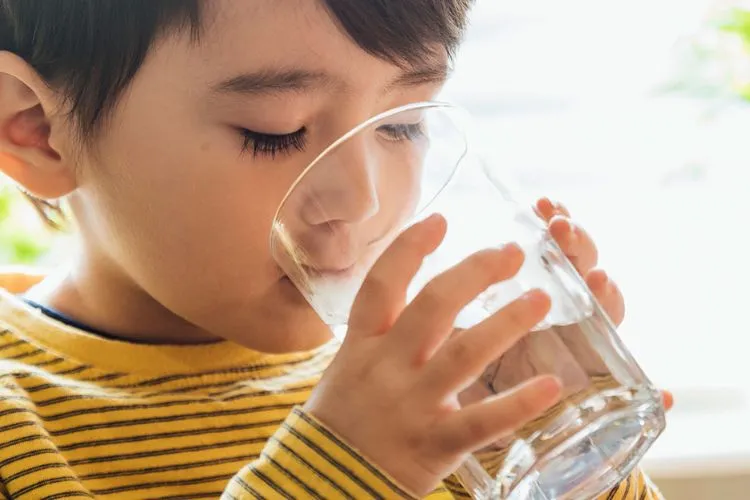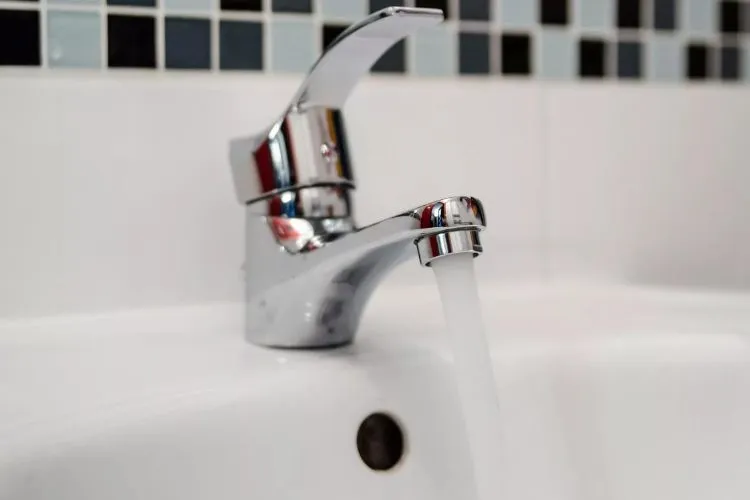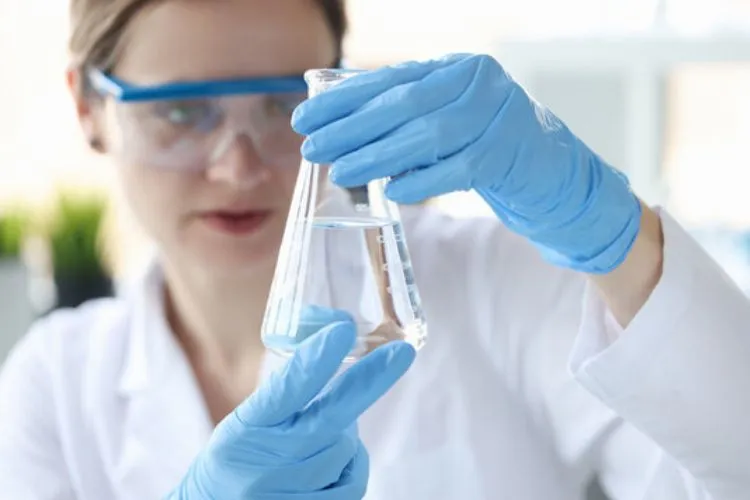Water comes in many forms, and not just the liquid, solid, and vapor we learn about in school.
When it comes to the water we use every day, its ‘hardness’ is a quality that affects everything from our household chores to personal care.
But, does NYC have hard water?

In New York City, a metropolis known for its towering skyscrapers and bustling streets, a key question arises: does it provide hard or soft water to its millions of residents?
💦 Does NYC Have Hard Water?
No, New York City is not having hard water, instead it is majorly known for having soft water.
The water in NYC comes from a series of reservoirs and is naturally soft, meaning it has a low concentration of calcium and magnesium.
This is in contrast to hard water, which has high levels of these minerals. NYC’s water is typically rated at about 1.5 grains per gallon (gpg) or less, which is considered soft.
Water hardness refers to the concentration of certain minerals in the water, primarily calcium and magnesium.
While ‘hard water’ may sound somewhat undesirable, it’s a natural result of water flowing through mineral-rich soil and rock.
Soft water, which has a lower concentration of these minerals, behaves differently with soaps and detergents and can have a distinctive taste.
💦 The Sources of NYC’s Water
New York City’s water is the envy of many other cities. It comes from vast watershed systems located upstate: the Catskill/Delaware and the Croton.
These water systems are renowned for the quality of water they provide, but they do bring minerals with them as they travel to the city’s taps.
💦 NYC Water Hardness Levels
If you’re worried about appliance scale build-up or stiff laundry, you might be relieved to know that New York’s water is generally considered to be soft.
The dissolved mineral content is low enough to fall within the soft water range on the hardness scale.

However, not all boroughs are created equal when it comes to water hardness. While a comprehensive survey of each borough’s hardness level would require specific data that is reliant on episodic testing, New Yorkers can generally count on having soft water running from their taps.
💦 Implications of NYC’s Water Hardness
So why does it matter if NYC has soft water? For starters, soft water requires less detergent to lather, meaning you can use less soap when washing dishes or doing laundry, potentially saving money and reducing environmental impact.
Soft water also generally leaves fewer mineral deposits on dishes, showers, and faucets.
In terms of personal care, soft water is kinder on the skin and hair. It doesn’t strip away natural oils as hard water can, so many people find they have fewer issues with dryness when they are in an area with soft water like NYC.
When it comes to taste, soft water offers a more neutral flavor, avoiding the often-touted “metallic” taste associated with hard water. This can make for a more enjoyable drinking experience and can slightly influence the taste of tea and coffee brewed using the tap water.
💦 How to Manage and Improve NYC Tap Measuring and Managing NYC’s Water Hardness
Even though NYC’s tap water is generally soft, some residents may prefer to alter their water’s mineral content. A simple charcoal filter can improve the taste further by removing chlorine and other additives used in water treatment.
For those few who might find that the minerals still present in NYC water create issues, a water softener typically isn’t necessary, but using a filter specifically designed to remove minerals can help.
💦 The Science Behind Water Hardness
Water hardness is primarily determined by the presence of dissolved calcium and magnesium ions in water, which are introduced through the water’s journey through soil and over rocks.
This process begins when rainwater, naturally acidic due to dissolved carbon dioxide, percolates through the ground.
As it moves through limestone and chalk deposits, which are largely composed of calcium carbonate and magnesium carbonate, the water dissolves these minerals, enriching it with calcium and magnesium ions.

The concentration of these ions in the water ultimately dictates its hardness level. The geological composition of the region, the pathways water travels through, and the interaction of water with different minerals all influence the hardness of water.
In essence, water’s hardness is a direct reflection of its journey through the Earth’s geological formations, capturing a snapshot of the mineral profile of the lands it traverses.
💦 The Future of NYC’s Water: Sustainability and Hardness
- Watershed Protection: NYC invests in protecting and enhancing its upstate watershed to ensure long-term water quality, including softness.
- Infrastructure Upgrades: Plans to upgrade water treatment and distribution infrastructure to preserve water purity and manage hardness levels.
- Sustainability Initiatives: Implementation of green infrastructure projects to reduce pollution and maintain the natural filtration process that contributes to water softness.
- Public Education: Efforts to educate the public on water conservation and pollution prevention to sustain water quality for future generations.
💦 Frequently Asked Questions (FAQs)
Does the hardness of NYC water vary by season?
Yes, the hardness of NYC water can vary slightly by season. This variation is due to changes in water sources and treatment processes in response to seasonal changes in water demand and quality.
How can I test the hardness of my water at home?
You can test the hardness of your water at home using a water hardness test kit, available at most home improvement stores. These kits usually include test strips that change color to indicate the water’s hardness level.
Are there any health risks associated with consuming hard water?
Consuming hard water is generally not considered a health risk. In fact, the minerals in hard water, such as calcium and magnesium, are beneficial to health. However, extremely high levels of hardness can contribute to other issues, like gallstones or urinary tract infections, though these cases are rare.
How does NYC’s water hardness compare to other major cities in the US?
NYC’s water is relatively soft compared to many major cities in the US. Places like Los Angeles, Las Vegas, and Phoenix have much harder water due to their water sources and regional mineral compositions.
Conclusion:
In the end, the question, “Does NYC have hard water?” can be answered with a reassuring “No.”
The water that flows through the veins of the city is soft, a boon to both the pipes it flows through and the people it serves.
It is still crucial for individuals to be mindful of their specific needs and test their water if they have concerns, but the general softness of NYC water is a marker of its high quality.

Devon Shorts, a seasoned expert with over a decade of experience in water safety, shares valuable insights on this blog “Aqua Safety Plus”. Trust his expertise to keep your water clean and your family safe.
